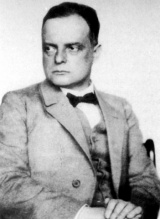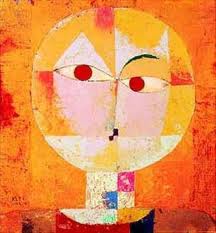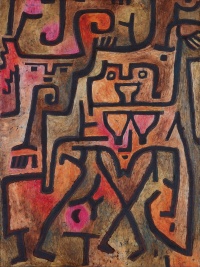Paul Klee: Difference between revisions
No edit summary |
No edit summary |
||
| (One intermediate revision by the same user not shown) | |||
| Line 23: | Line 23: | ||
== Additional resources == | == Additional resources == | ||
* [http://www.khaldea.com/charts/klee.shtml Paul Klee Natal Horoscope] at Khaldea. | |||
== Notes == | == Notes == | ||
| Line 32: | Line 34: | ||
[[Category:Nationality German|Klee, Paul]] | [[Category:Nationality German|Klee, Paul]] | ||
[[Category:Famous people|Klee, Paul]] | [[Category:Famous people|Klee, Paul]] | ||
[[Category:People|Klee, Paul]] | |||
Latest revision as of 04:02, 8 October 2017
UNDER CONSTRUCTION
UNDER CONSTRUCTION
Paul Klee was a Swiss-German artist influenced by Theosophy and by the art movements of Expressionism, Cubism, and Surrealism.
Personal life
Paul Klee was born December 18, 1879 in Münchenbuchsee, Switzerland. His German father was a music teacher and his mother was a Swiss singer. The boy, a talented violinist, naturally aspired to a musical career until he found more meaning in the visual arts. He was not a stellar student, but in 1898 was admitted to the Academy of Fine Arts in Munich.
He died on June 29, 1940.
Artistic career
Klee was known for his writings and lectures on color theory and design.
Work at Bauhaus
While working at the Bauhaus, Klee was influenced, directly or indirectly, to Theosophy by his colleague Wassily Kandinsky. He was also exposed to the concepts of Rudolf Steiner.[1]
Writings
Additional resources
- Paul Klee Natal Horoscope at Khaldea.
Notes
- ↑ Tessel M. Bauduin, "Abstract Art as 'By-Product of Astral Manifestation': The Influence of Theosophy on Modern Art in Europe" Handbook of the Theosophical Current (Leiden: Brill, 2013), 448.


